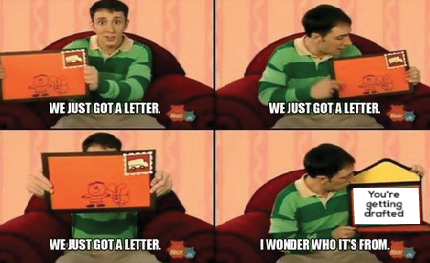With nearly universal access to the Internet, information spreads significantly faster than ever before. Following the news of the killing of Iranian General Qasem Soleimani, there was a very legitimate fear of World War III or a war with Iran, either of which would entail horrible consequences.
Yet, Generation Z is barely phased, constantly downplaying this situation and others of similar gravity on social media. While this may seem insensitive to some, this is simply the way our generation deals with these issues and should be taken with a grain of salt.
World War III memes have taken the Internet by storm. People have begun to express their fears of war and a potential military draft by making light of the situation on TikTok, Instagram and other social media platforms. These memes have come under fire by some who feel they are insensitive and undermine the severity and tragedy of true war.
But this is a prime example of cultural disparities between generations in our society. While it may seem like teens are brushing off the specter of a world war, this is not the case. Gen Z simply responds to their problems and fears differently than previous generations—we make jokes.
Western Governors University explains that Gen Z, more than any other generation, is negatively impacted and stressed out by the issues around them (i.e. gun violence, sexual harassment, political affairs, etc.). Furthermore, a study conducted by health organization Cigna has found Gen Z to be the loneliest generation of all. This increased anxiety, coupled with the desire to belong, leads many teens to express their fears and attempt to remedy their problems through social media.
While it is difficult to say why exactly this has led to the creation of memes, a study at Stanford University attributes this to a psychological response aimed at reducing stress. It found that responding to a negative image with positivity and humor was very effective in coping with fear. On the other hand, cynicism or realism only heightened anxiety.
Dr. Gina Barecca who writes for Psychology Today said that humor is a way to tackle fear head-on and confront it, as opposed to dismissing it or putting it aside.
“Humor is, of course, the one thing that fear cannot abide: laughter banishes anxiety and can help replace fear,” Barecca said. “Laughter is a testament to courage, or at least a manifestation of the wish for it, and courage is stronger than fear.”
In other words, humor is very beneficial in dealing with one’s problems and maximizing mental health. This suggests that Gen Z’s joking nature and tendency to make light of situations is less of a conscious decision and more of a necessary adaptation for mental wellbeing.
At the very least, these memes provide a source of information for many teens who would be left unaware of current events without them.
“I hadn’t even heard about what was going on in Iran until I saw all the World War III memes on TikTok,” freshman Sophia Lamar said. “At first, I was confused, but then I realized, oh shoot, this is a real possibility.”
While ideally, we would all keep in touch with what is going on in the world, many teens do not. At the bare minimum, memes ensure that these important issues stay on our minds, regardless of their facetiousness. Though they can indeed come across as insensitive and can certainly lead to negative offshoots, jokes are important for teens’ mental health and as a source of information.
Memes are a good starting point, but the only way to truly address these issues is through knowledge and action—a difficult, but necessary step in our generation’s maturation. Therefore, instead of being faced with contempt, Gen Z and their memes should be treated as what they are: an alternative, albeit an imperfect one, to stress and ignorance.









